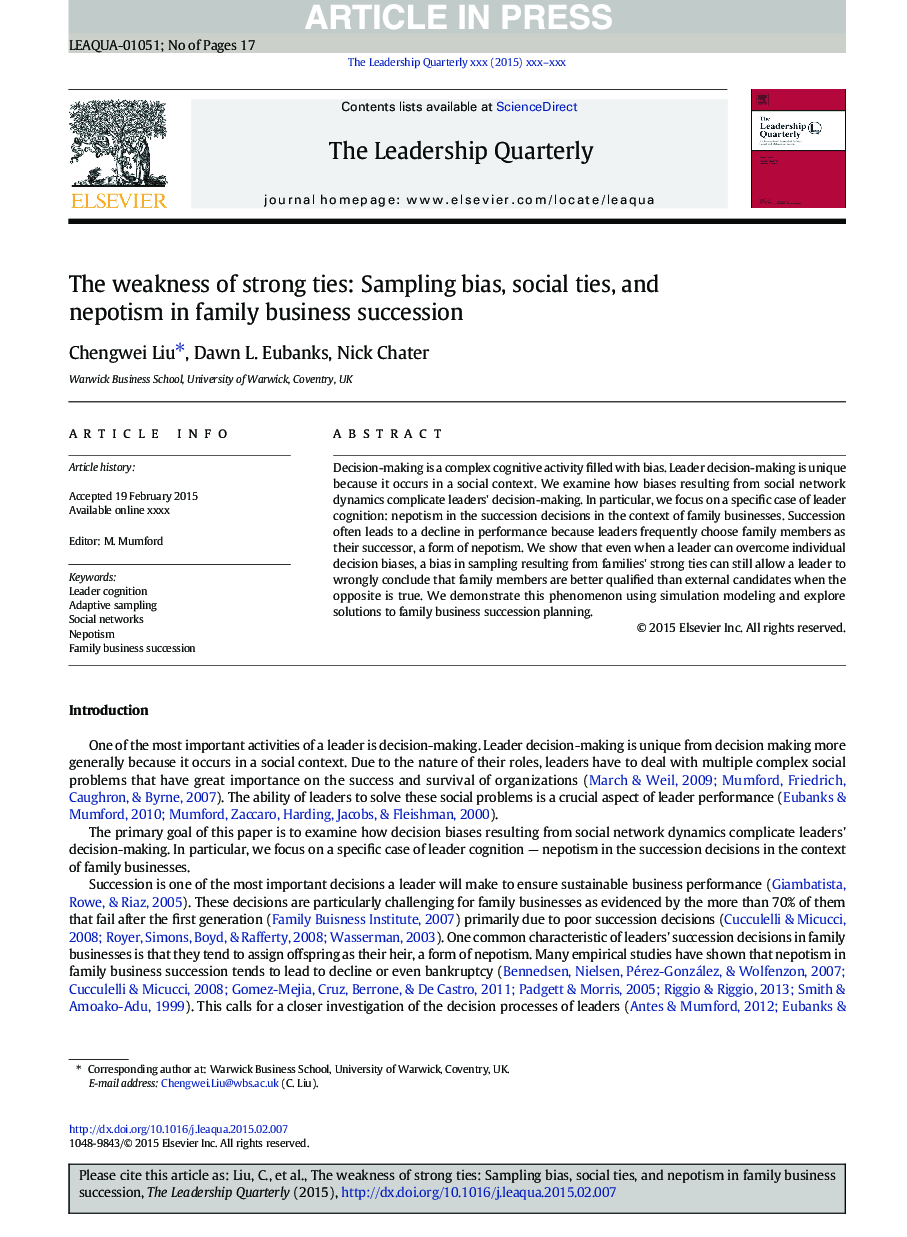| Article ID | Journal | Published Year | Pages | File Type |
|---|---|---|---|---|
| 10439491 | The Leadership Quarterly | 2015 | 17 Pages |
Abstract
Decision-making is a complex cognitive activity filled with bias. Leader decision-making is unique because it occurs in a social context. We examine how biases resulting from social network dynamics complicate leaders' decision-making. In particular, we focus on a specific case of leader cognition: nepotism in the succession decisions in the context of family businesses. Succession often leads to a decline in performance because leaders frequently choose family members as their successor, a form of nepotism. We show that even when a leader can overcome individual decision biases, a bias in sampling resulting from families' strong ties can still allow a leader to wrongly conclude that family members are better qualified than external candidates when the opposite is true. We demonstrate this phenomenon using simulation modeling and explore solutions to family business succession planning.
Related Topics
Social Sciences and Humanities
Business, Management and Accounting
Business and International Management
Authors
Chengwei Liu, Dawn L. Eubanks, Nick Chater,
